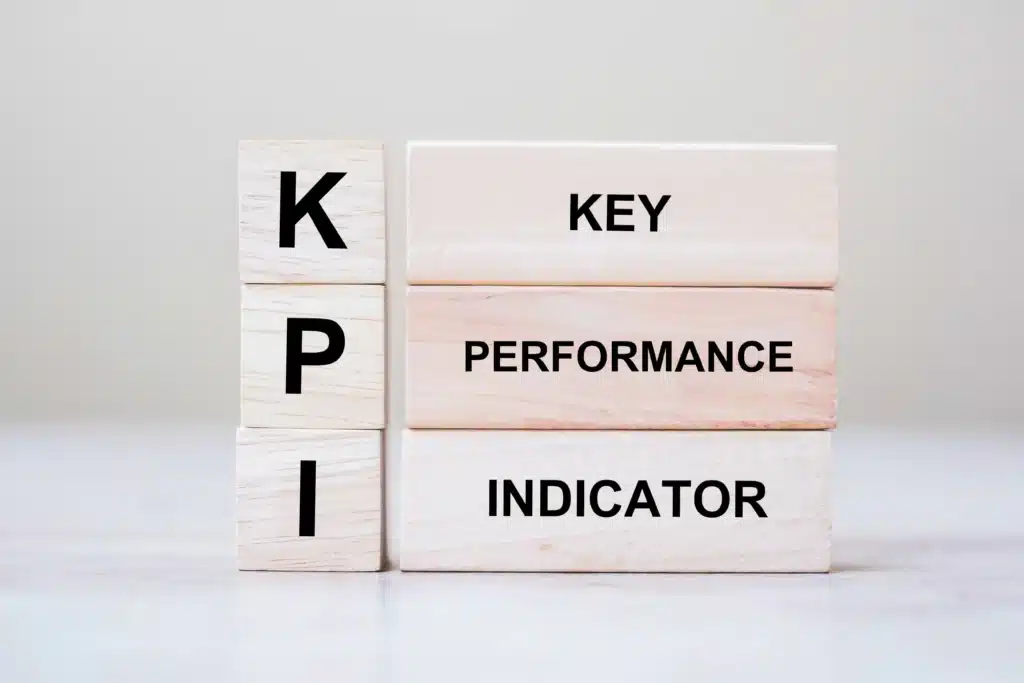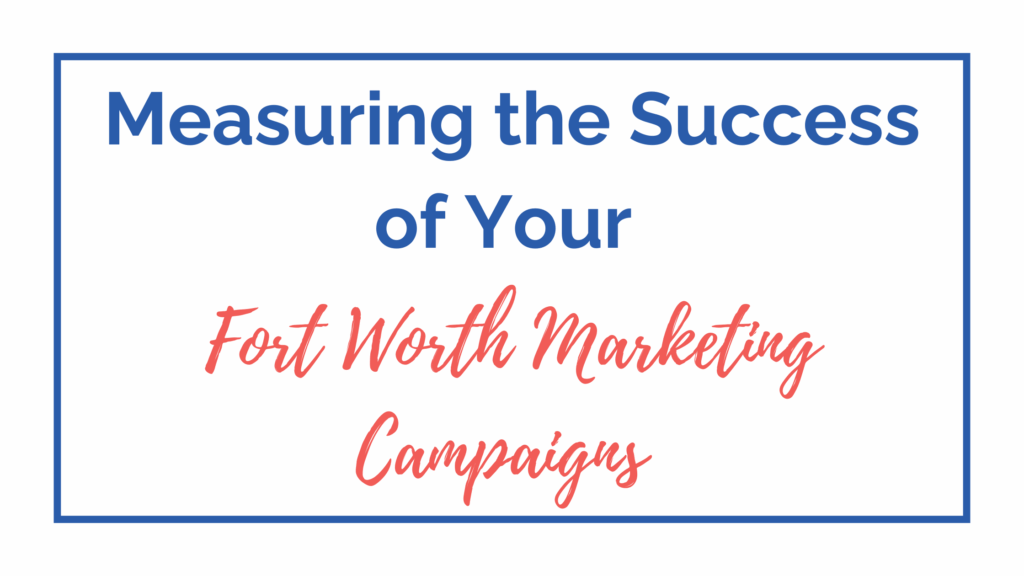How to Measure Your Fort Worth Marketing Campaigns Success

You’ve launched ads on Google, posted on social media, maybe sent emails — but how do you really know whether those Fort Worth marketing campaigns are working? For Fort Worth small businesses, measuring campaign success with analytics tools, key metrics, data interpretation, and strategy adjustment isn’t optional — it’s essential.

In this guide from Panther City Digital Marketing, you’ll learn how to:
- Define what “success” means for your campaigns
- Pick and use analytics tools that are realistic for small teams
- Focus on the few metrics that actually matter
- Read and interpret data so you know what’s working
- Make smart adjustments that improve results over time
If you run a service business, or local retail shop in Fort Worth, this guide gives you a measurement framework you can actually use — no fluff, no overwhelm.
Set Clear Goals & KPIs
Before you touch any analytics, define your goals.
Why specific goals matter
Without clear goals, you’ll drown in data. Marketing Insider Group emphasizes starting with goals, because metrics need context. Instead of “increase traffic,” a sharper goal is: “Generate 50 new leads from Facebook over 30 days” or “Increase online orders from 76107 by 20% in 3 months.”
You can find more examples of how to plan realistic marketing goals on our blog.
What’s a KPI?

KPIs (Key Performance Indicators) are the measurable outcomes that reflect progress toward your goals. For example, at the awareness stage, track impressions or reach; in the decision stage, look at conversion rate or ROAS.
Mapping goals to KPIs
| Objective | KPI(s) |
|---|---|
| Raise brand awareness | Impressions, reach, share of voice |
| Drive traffic | Sessions, new users, source breakdown |
| Generate leads | Email signups, form fills, cost per lead |
| Drive sales | Conversion rate, ROAS, CAC |
This mapping keeps your analytics tools aligned with your real business objectives.
Essential Analytics Tools for Small Businesses
You don’t need enterprise software to measure success effectively. Use tools that fit your size and needs.
Google Analytics (GA4)
The go-to free tool that tracks sessions, traffic sources, user paths, and conversions. It links directly with Google Ads so you can tie spend to results.
If you haven’t installed GA4 yet, we can help with setup — reach out through our contact page.
Google Tag Manager
Simplifies tracking code management without diving into your website code every time. Great for tracking button clicks or video plays.
Social & Platform Analytics
Use Meta Business Suite, Instagram Insights, or TikTok Analytics to monitor engagement, reach, and conversions.
We often cover platform-specific tips in our blog, including how to interpret these numbers.
Marketing Dashboards & Reporting Tools
Dashboards like Google Data Studio or DashThis combine GA, social, and ad data in one view. These simplify reporting and help spot trends quickly.
Want to see recommended dashboards for Fort Worth businesses? Visit our Resources page.
CRM & Attribution Software
CRMs help track leads and link campaigns to conversions. If you’re ready to connect your digital marketing and sales data, Panther City Digital Marketing can show you how.
Key Metrics to Track & Why They Matter
Not all metrics are equal. Focus on those that connect directly to business results.
Business Impact Metrics
- Return on Marketing Investment (ROMI): Profit earned per marketing dollar.
- Customer Acquisition Cost (CAC): Spend per new customer gained.
- Customer Lifetime Value (CLV): Expected revenue from a single customer.
These indicate whether your marketing is financially sustainable.
Campaign Performance Metrics
- Conversion Rate: Percent of users taking desired actions.
- Cost per Acquisition (CPA): Spend per conversion.
- Click-Through Rate (CTR): Ad or content effectiveness.
- Reach & Impressions: Brand visibility.
- ROAS: Revenue divided by ad spend.
We go deeper into metric tracking in our blog — especially for local businesses using PPC or social ads.
Audience Behavior Metrics
- Session Duration
- Bounce Rate
- Return Visitor Rate
- Engagement per Content Piece
These reveal how users interact with your site and whether your content resonates.
If you’re seeing unusual patterns or sudden drops, get in touch via our contact form for a free analytics review.
Interpretation & Data Storytelling
Context is Everything
A 5% conversion rate might be stellar for one campaign, weak for another. Always interpret metrics in context — your goals, past data, and audience behavior.
Visualization Helps
Turn numbers into visuals. Charts and graphs make data easier to digest and share with your team.
Attribution & Multi-Touch Paths
Avoid focusing on the last click only. Real-world marketing involves multiple touchpoints. Attribution models (linear, time-decay, first-click) help you see the full picture.
Strategy Adjustment Based on Data
Data should guide real action.
Identify Weak Spots
Pause campaigns that drain your budget with little return. Reinvest in what’s working — maybe Google Ads perform better than Facebook for your ZIP code.
Test & Iterate
A/B test headlines, targeting, or landing pages. Measure results and adapt. Small changes add up over time.
Local Insight
Fort Worth audiences might respond differently based on neighborhoods — what works in 76107 might not in 76133. Tailor campaigns by location for stronger performance.
For local optimization help, contact us to discuss targeted strategies.
Quick Takeaways
- Set clear goals before tracking anything
- Choose 5–10 meaningful metrics
- Use tools like Google Analytics and dashboards to simplify tracking
- Always interpret metrics in context
- Adjust your strategy using data-driven decisions
- Review your results regularly
For more marketing insights like these, explore our blog.
Conclusion
Measuring your Fort Worth marketing campaigns isn’t about collecting endless data — it’s about understanding what drives growth. When you define goals, pick smart KPIs, and interpret results honestly, your Fort Worth business gains a roadmap for smarter marketing.
If you’re ready to take the guesswork out of analytics, the team at Panther City Digital Marketing is here to help. Whether it’s setting up dashboards or identifying key success metrics, we’ll make data easy to use and understand.

Reach out today via our contact page to start improving your Fort Worth marketing campaigns and overall performance.
💬 What Our Clients Say
“Megan with Panther City Marketing was a great help for me today! She tuned up my wordpress website after a malware breech, and did it in person, which have been searching for and love.Megan is intellegent, effecient, personable and knowledgable. I can recommend her and Panther City Marketing to anyone, Five Stars.” — Andrew W. ⭐️⭐️⭐️⭐️⭐️
FAQs
1. How long should I wait before judging a campaign?
Give it at least 2–4 weeks (or enough conversions) before declaring wins or losses. Early data can mislead.
2. What’s a good conversion rate for Fort Worth businesses?
It depends on industry. A 2–5% rate is common in many verticals. Use your past campaigns as a benchmark.
3. Should I track metrics every day?
Check key metrics daily, but do deeper analysis weekly or monthly to avoid overreacting to noise.
4. Can I rely on free analytics tools?
Yes — Google Analytics and platform-native dashboards are sufficient early on. Paid tools help when you scale.
5. How do I connect online data to in-store sales?
Use promo codes, ask customers how they found you, or use POS systems with digital attribution. UTM links + CRM help too.
References
- Meltwater: Top Campaign Measurement Tools 2025 Meltwater
- Online HBS Blog: 7 Marketing KPIs You Should Know Harvard Business School Online



